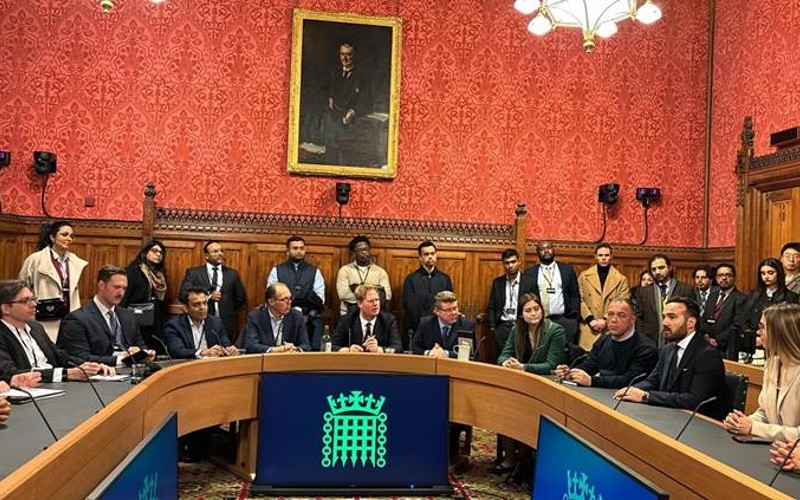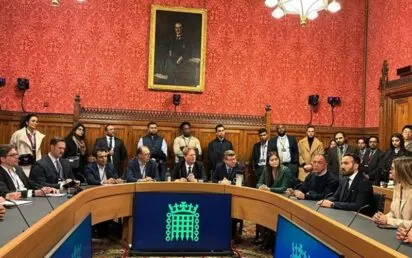Leading figures from Britain’s cyber industry gathered in Parliament last night to discuss the risk posed by AI to national security.
Speaking at the Parliament Street think tank’s Cyber summit on Monday night, which was hosted by Dean Russell MP for Watford and chaired by Steven George-Hilley of Centropy PR, a panel of experts addressed the risks posed by AI deep fakes, hacking and ransomware to critical national infrastructure.
Victor Murineanu, CISO of Chelsea Football Club tackled the issue of the UK’s rising cyber skills gap, calling for better recruitment and training for young people, and more teaching of cyber skills in schools.
The call to action was echoed by cyber guru Sarah Rench of Avanade, who also noted that companies are beginning to increase spending on cyber skills.
Nicko van Someren, CTO, Absolute Software said: “Recent, rapid advances in Artificial Intelligence are opening up a whole host of new opportunities in cyber security. Unfortunately, many of those opportunities are for the bad guys!
“It’s critical that we put these developments to use for defence as soon as possible, since we can be sure that the attackers are already on the case.”
Meanwhile cyber expert Paul Connaghan, principal consultant, application security at RiverSafe said: “As the threat landscape continues to rise in complexity with threats such as AI, ransomware and state-sponsored attacks, visibility over IT systems is no longer a ‘nice to have’, it’s a necessity.
“As threats become more sophisticated, having comprehensive insight into network traffic, user activity and system behaviour is crucial for an effective defence posture. By investing in robust threat intelligence that provides real-time visibility, businesses can proactively identify and mitigate potential threats, better protecting themselves and their staff.”
Angus Lockhart, COO at SECQAI, added: “The cyber landscape is getting more and more complex in line with escalating global tensions and conflict. We need to ensure the UK is protected against today’s and tomorrow’s threats.
“This means mitigating 70% of existing cyber attacks by ensuring the hardware we use is ‘memory safe’. It also means preparing for tomorrow’s quantum threat to our encryption systems by starting our transition to post-quantum cryptography.”
Nithin Thomas, founder and CEO of Klarytee, said AI “promises to be one of the most transformational technologies of this century”.
“As businesses start embracing its potential, we will start seeing a whole new wave of cyber threats, supercharged by powerful AI technologies. It’s now more important than ever that we take a proactive approach to ensuring our sensitive data stays protected at all times,” he continued.
Firm ordered to stop using facial recognition tech to monitor workers


